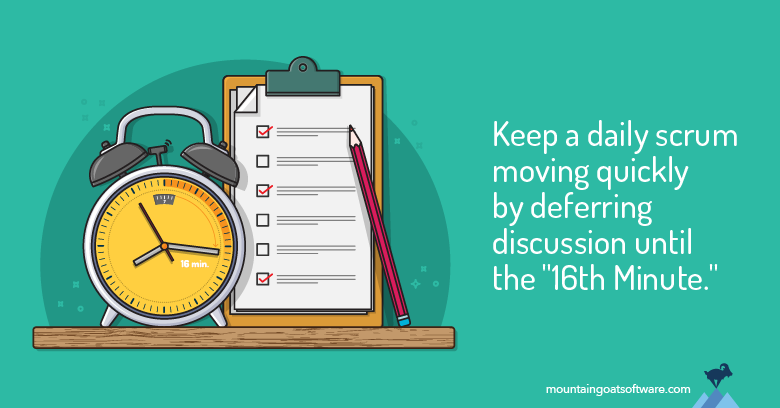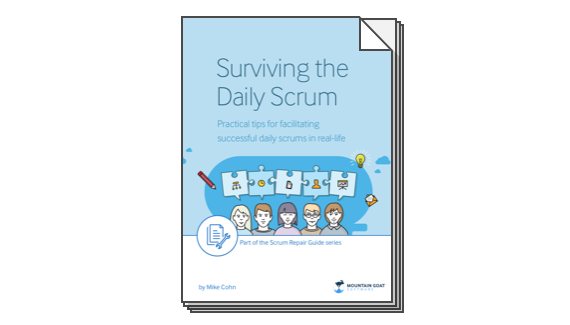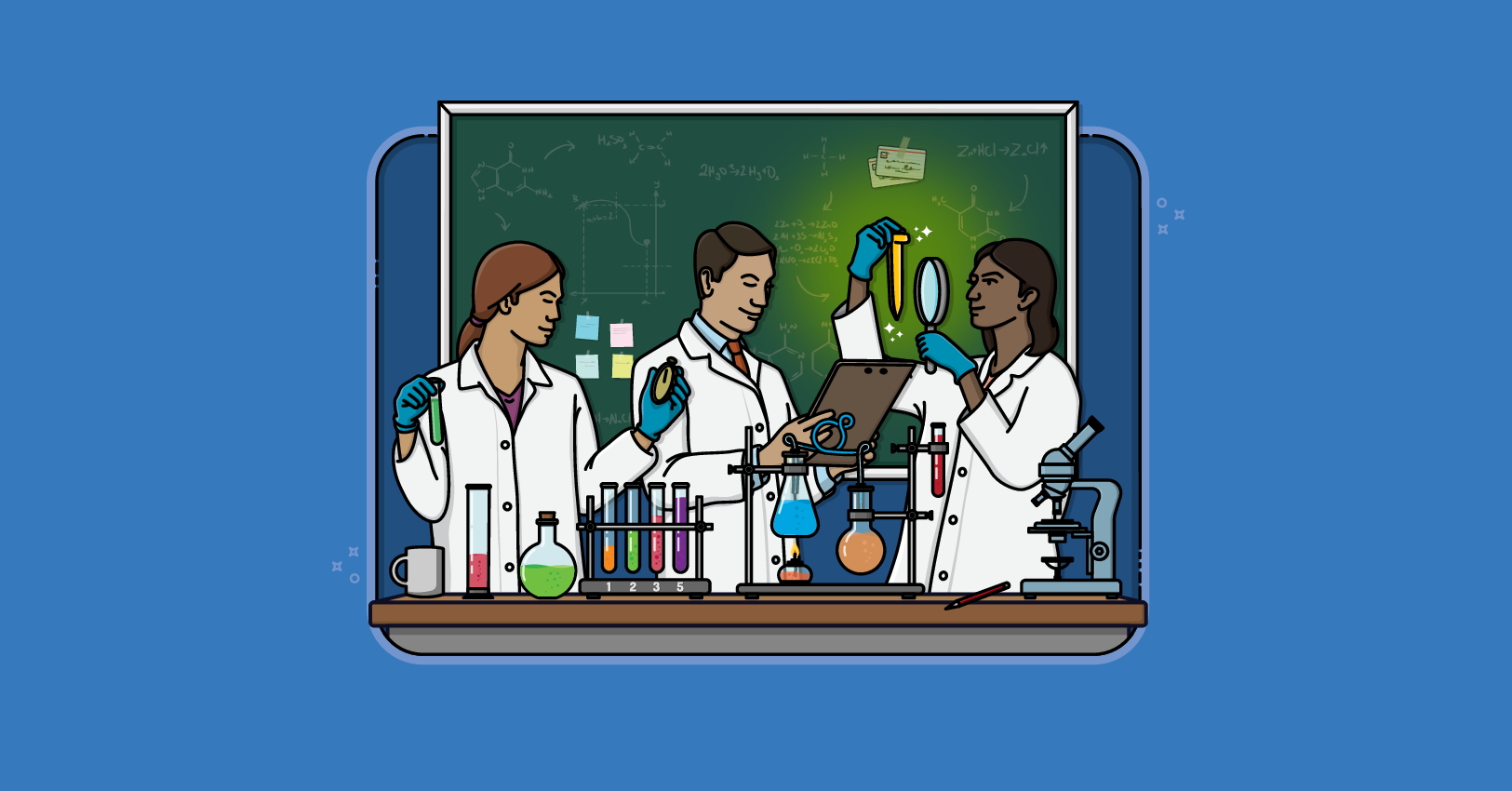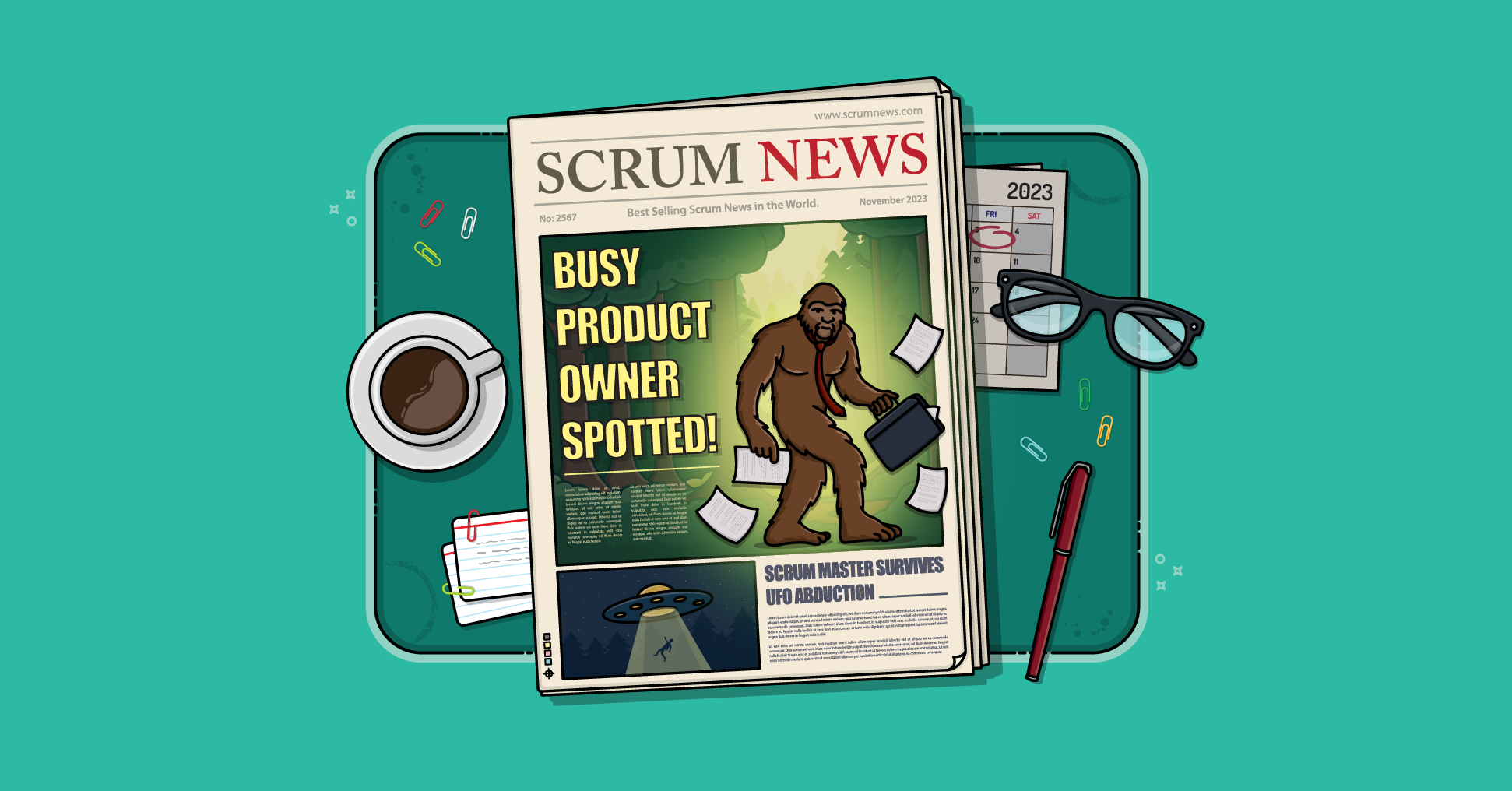Many teams struggle with keeping the daily scrum short. Some teams even exceed the standard fifteen-minute time box on a routine basis. I was teaching a Certified Scrum Master course a couple of weeks ago and someone there mentioned a great idea that I want to share.
When someone in the daily scrum starts to say something that would go deeper or beyond the traditional scope of the daily scrum, the Scrum Master can say, "That's an interesting point. Let's save it for the 'Sixteenth Minute.'" This can be used to defer problem solving, interesting facts the rest of the team should know, and so on. It's an extremely polite way of keeping the meeting focused yet allowing time additional information to be shared.
And just to be clear, the "Sixteenth Minute" may not occur in the actual sixteenth minute and it may be shorter or longer than one minute. It is more concept than actual time or time box.
I haven't had a chance yet to try this technique but I will next month. I'll use the Sixteenth Minute as a transition period between the daily scrum and the informal discussions that commonly crop up immediately following the daily scrum. So, we'll do a daily scrum with everyone present. Then we'll do a Sixteenth Minute (when needed), still with everyone present. Then, as the ScrumMaster, I'll call the meeting officially over and encourage sub-groups to discuss and resolve any hot issues that came up during the meeting.
(My apologies for not remembering specifically who mentioned this idea. If it was you, email me, and I'll credit you here.)









